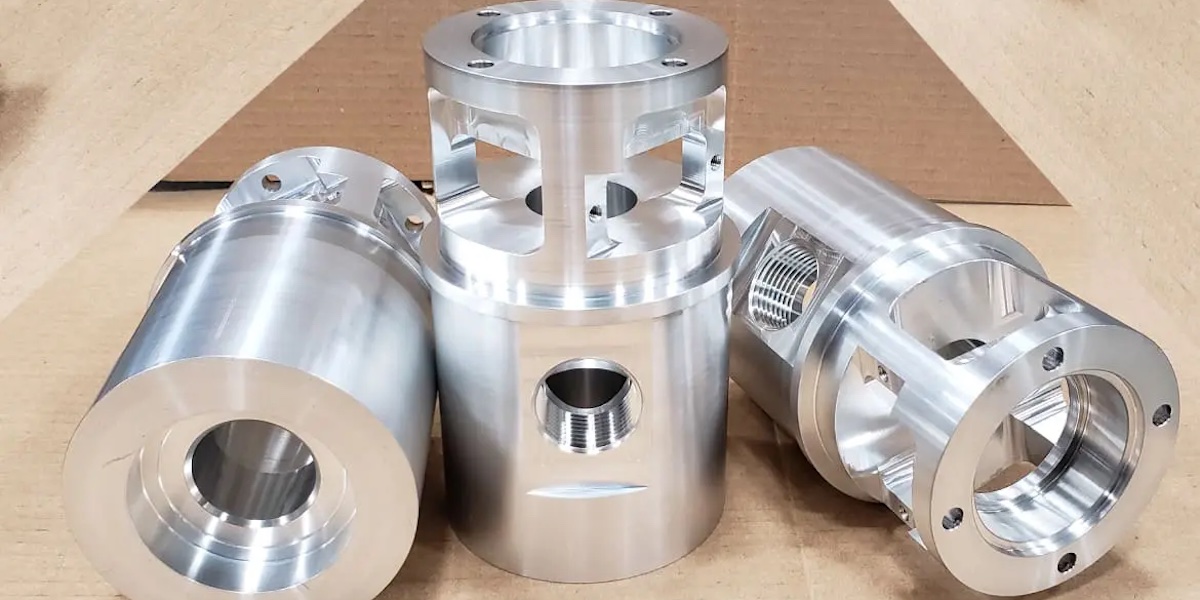In today’s rapidly evolving manufacturing landscape, the ability to produce custom metal parts efficiently and accurately is more important than ever. From automotive components to intricate aerospace parts, the demand for customized solutions is growing. Whether you’re a seasoned manufacturer or just starting, understanding the best methods for creating custom metal parts can significantly impact your production process and overall success.
CNC Machining for Custom Metal Parts
CNC Machining for custom metal parts leverages computer numerical control to operate machine tools with unparalleled precision and consistency. This method is ideal for creating intricate designs and complex geometries with tight tolerances. CNC machining is versatile, working with a wide range of metals, including aluminum, steel, and brass.
It ensures high repeatability, making it perfect for both prototyping and large-scale production. Industries such as automotive, aerospace, and medical rely on CNC machining for its reliability and efficiency in producing high-quality, custom components tailored to specific needs and specifications.
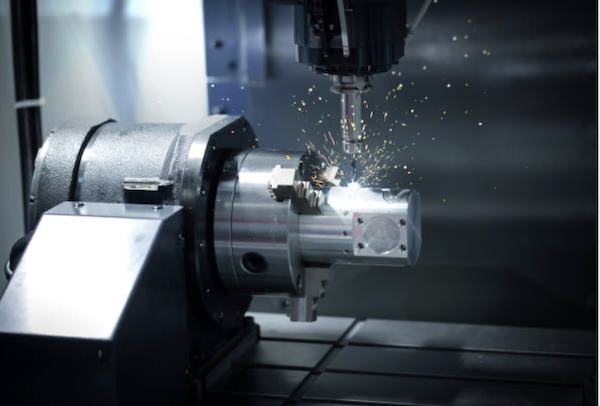
1. Advantages of CNC Machining
CNC machining offers a multitude of advantages that make it a preferred method for manufacturing custom metal parts. Here’s a closer look at why CNC machining stands out in the realm of precision engineering and manufacturing:
High Precision and Accuracy
CNC machining is renowned for its exceptional precision and accuracy. The computer-controlled process ensures that every cut, turn, and movement is executed with meticulous detail, allowing for extremely tight tolerances. This level of precision is crucial in industries where even the smallest deviation can lead to significant issues, such as aerospace and medical device manufacturing.
Consistency and Repeatability
Once a CNC machine is programmed with the necessary instructions, it can produce identical parts consistently and with high repeatability. This eliminates the variability associated with manual machining, ensuring that every part meets the exact same standards. This consistency is vital for large production runs where uniformity is critical.
Efficiency and Speed
CNC machines can operate continuously and at high speeds, significantly reducing production times. They are capable of performing multiple operations in a single setup, such as drilling, milling, and turning, which streamlines the manufacturing process. This efficiency translates to faster turnaround times and the ability to meet tight deadlines.
Versatility in Materials
CNC machining is compatible with a wide range of materials, including various metals like aluminum, steel, brass, and titanium, as well as plastics and composites. This versatility allows manufacturers to choose the best material for their specific application, balancing factors such as strength, weight, and cost.
Complex Geometries and Intricate Designs
CNC machines excel at creating complex geometries and intricate designs that would be challenging or impossible to achieve with manual machining. This capability opens up new possibilities for innovative product designs and enhanced functionality. Whether it’s creating detailed patterns or producing complex parts with multiple features, CNC machining delivers unmatched design flexibility.
Cost-Effectiveness for High Volume Production
While the initial setup and programming costs for CNC machining can be higher, the method becomes highly cost-effective for high-volume production runs. The automated nature of CNC machining reduces labor costs and minimizes the risk of errors, leading to lower overall production costs per part. This makes it an economical choice for manufacturing large quantities of custom metal parts.
Scalability
CNC machining provides excellent scalability, accommodating both small-scale projects and large-scale production runs. Manufacturers can easily adjust production volumes based on demand, ensuring flexibility and responsiveness to market needs. This scalability makes CNC machining suitable for everything from prototype development to mass production.
In summary, CNC machining offers numerous advantages that make it an indispensable method for producing custom metal parts. Its precision, consistency, efficiency, and versatility ensure high-quality results, making it a cornerstone of modern manufacturing across various industries. Whether you need a single prototype or thousands of identical parts, CNC machining provides the reliability and performance necessary to meet your production needs.
2. Applications in Various Industries
CNC machining is a versatile and reliable manufacturing method used across a wide range of industries due to its precision, efficiency, and ability to produce complex parts. Here are some notable applications:
Automotive Industry
In the automotive sector, CNC machining is crucial for producing engine components, transmission parts, and custom fittings. The high precision and consistency of CNC machining ensure that critical parts meet stringent quality standards, enhancing the performance and safety of vehicles. Components like pistons, cylinder heads, and exhaust parts are commonly manufactured using CNC technology.
Aerospace Industry
The aerospace industry demands parts with extremely tight tolerances and high reliability. CNC machining meets these requirements by producing complex components such as turbine blades, landing gear parts, and structural elements with exceptional precision. The ability to work with high-strength materials like titanium and aluminum alloys makes CNC machining indispensable for aerospace applications.
Medical Industry
In the medical field, CNC machining is used to manufacture surgical instruments, implants, and prosthetics. The precision of CNC machining is vital for creating parts that must meet rigorous health and safety standards. Customized medical devices tailored to individual patient needs, such as orthopedic implants and dental prosthetics, are often produced using CNC technology.
Electronics Industry
CNC machining plays a significant role in the electronics industry by fabricating components such as heat sinks, enclosures, and connectors. The ability to produce intricate and detailed parts ensures that electronic devices function reliably and efficiently. CNC machining is also used in the prototyping and production of printed circuit boards (PCBs).
Industrial Machinery
For industrial machinery, CNC machining produces components like gears, shafts, and bearings that require high durability and precision. The robustness of CNC-machined parts ensures the longevity and reliability of machinery used in manufacturing, construction, and other heavy-duty applications.
In summary, CNC machining is essential across various industries for its ability to produce high-quality, precise, and reliable custom metal parts. Its applications range from automotive and aerospace to medical and electronics, showcasing its versatility and critical role in modern manufacturing.
Sheet Metal Fabrication for Custom Metal Parts
Sheet metal fabrication is another essential method for creating custom metal parts. This process involves cutting, bending, and shaping metal sheets into desired forms, offering versatility and efficiency.
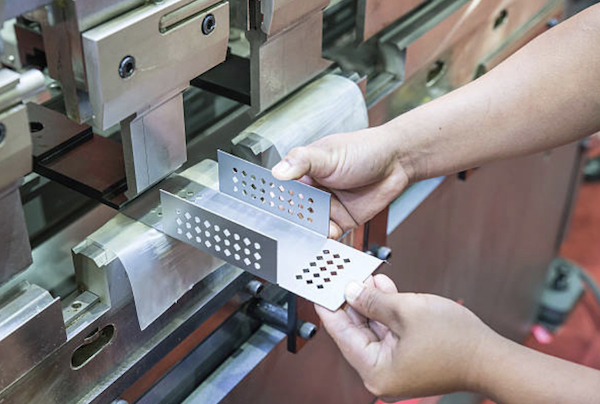
1. Bending, Cutting, and Shaping Processes
- Bending: This process shapes metal sheets by applying force, creating angles and curves essential for various applications.
- Cutting: Techniques like laser cutting, waterjet cutting, and plasma cutting are used to precisely cut metal sheets into specific shapes.
- Shaping: Methods such as stamping and punching are employed to create holes, indentations, and other intricate designs in metal sheets.
2. Benefits of Sheet Metal Fabrication
Sheet metal fabrication is favored for its efficiency and cost-effectiveness. It allows for rapid prototyping and production, making it ideal for both small and large-scale projects. The process also enables the creation of lightweight yet durable components, suitable for applications ranging from consumer electronics to construction equipment.
Metal Casting for Custom Metal Parts
Metal casting is a traditional yet highly effective method for producing custom metal parts. This process involves pouring molten metal into a mold, allowing it to solidify into the desired shape.
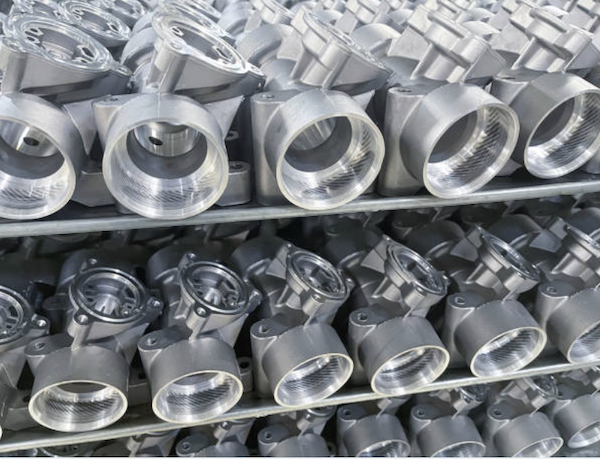
1. Overview of Metal Casting Methods
There are several metal casting methods, each suited for different applications:
- Sand Casting: Ideal for producing large parts with complex geometries. It uses sand molds, which are inexpensive and easy to shape.
- Die Casting: Best for high-volume production of smaller parts. It utilizes reusable metal molds, ensuring high precision and surface finish.
- Investment Casting: Known for its ability to produce intricate and detailed parts. It involves creating a wax pattern, coating it with a ceramic shell, and then melting the wax to form a mold.
2. Precision and Versatility in Metal Casting
Metal casting offers unmatched versatility, allowing manufacturers to create parts with complex shapes and detailed features. It’s widely used in industries such as automotive, aerospace, and industrial machinery. The ability to work with various metals, including aluminum, iron, and bronze, further enhances its application scope.
3D Printing for Custom Metal Parts
The rise of additive manufacturing, commonly known as 3D printing, has revolutionized the production of custom metal parts. This technology builds parts layer by layer, offering unprecedented design freedom and efficiency.
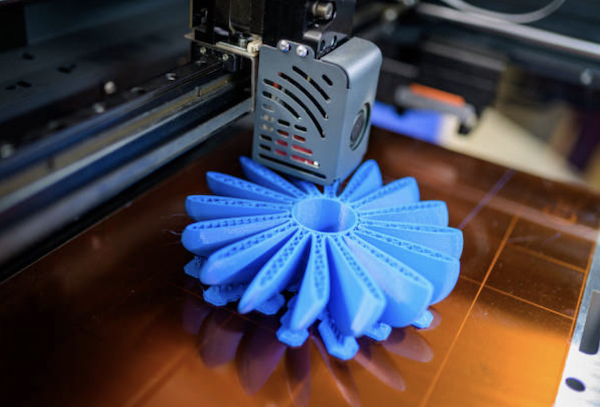
1. The Rise of Additive Manufacturing
3D printing has gained popularity due to its ability to produce complex geometries that traditional methods struggle to achieve. It enables rapid prototyping, allowing designers to iterate quickly and bring products to market faster.
2. Cost-Effectiveness and Design Flexibility
One of the significant advantages of 3D printing is its cost-effectiveness for low-volume production. Unlike traditional methods, which require expensive molds and tooling, 3D printing only requires a digital file. This makes it ideal for creating prototypes and small batches of custom parts. Additionally, 3D printing allows for intricate internal structures and lightweight designs, enhancing the performance and functionality of the parts.
Laser Cutting and Engraving for Custom Metal Parts
Laser cutting and engraving are precision techniques used to create custom metal parts with intricate details and high accuracy.
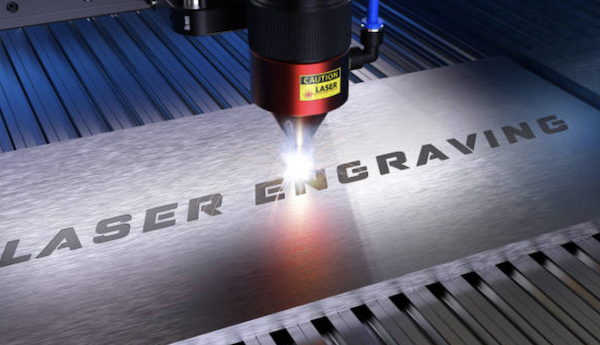
1. Precision and Speed in Laser Cutting
Laser cutting uses a high-powered laser beam to cut through metal, providing clean and precise edges. It’s capable of cutting complex shapes and patterns with minimal waste and high efficiency. This method is particularly useful for producing parts with tight tolerances and intricate designs.
2. Customization Options with Laser Engraving
Laser engraving adds another layer of customization by allowing manufacturers to etch detailed designs, logos, and text onto metal parts. This technique is used for both functional and aesthetic purposes, enhancing the overall appeal and utility of the parts. Industries such as electronics, jewelry, and automotive use laser engraving for branding and personalization.
Contact RALLY for Custom Metal Parts
Do you need high-quality metal parts customised to your specific requirements? Then come to RALLY! Our state-of-the-art CNC machining services ensure precision, consistency and efficiency on every project, regardless of its complexity. Whether you’re in the automotive, aerospace, medical, electronics, or industrial machinery industries, we have the expertise and know-how to provide you with superior results.
Contact us today to discuss your project needs and learn how our cutting-edge solutions can help you succeed. Contact RALLY today to take the first step towards excellence in custom metal parts.
FAQs
What is the most precise method for creating custom metal parts?
How does 3D printing benefit low-volume production?
What are the advantages of sheet metal fabrication?
Can metal casting produce complex geometries?
How does laser cutting differ from traditional cutting methods?
What industries benefit from laser engraving?
Work with RALLY for CNC Machining Parts
Request a quote for new project today! No minimum order quantity and free samples available!

